An Army three-star general at the Pentagon has been suspended while the service investigates claims that he created a toxic climate, regularly degraded others in public forums, went out of his way to criticize the performance of Black officers, and made racist remarks, Task & Purpose has learned.
Lt. Gen. Duane Gamble, the Army deputy chief of staff for logistics — head of an office commonly referred to as the G-4 — was reported to the Army’s Office of the Inspector General in September 2020 amid accusations that he cultivated a toxic environment in the office. Two months later, an official investigation was launched.
The investigation examined allegations that Gamble “created or fostered a counterproductive leadership environment,” said Cynthia Smith, an Army spokeswoman. The Defense Department Inspector General recently completed its review of the Army investigation’s findings on Feb. 11, Smith said in response to questions from Task & Purpose the same day.
On Feb. 15, Smith confirmed Gamble had been suspended pending the outcome of the investigation. Gamble did not respond to repeated requests for comment from Task & Purpose.
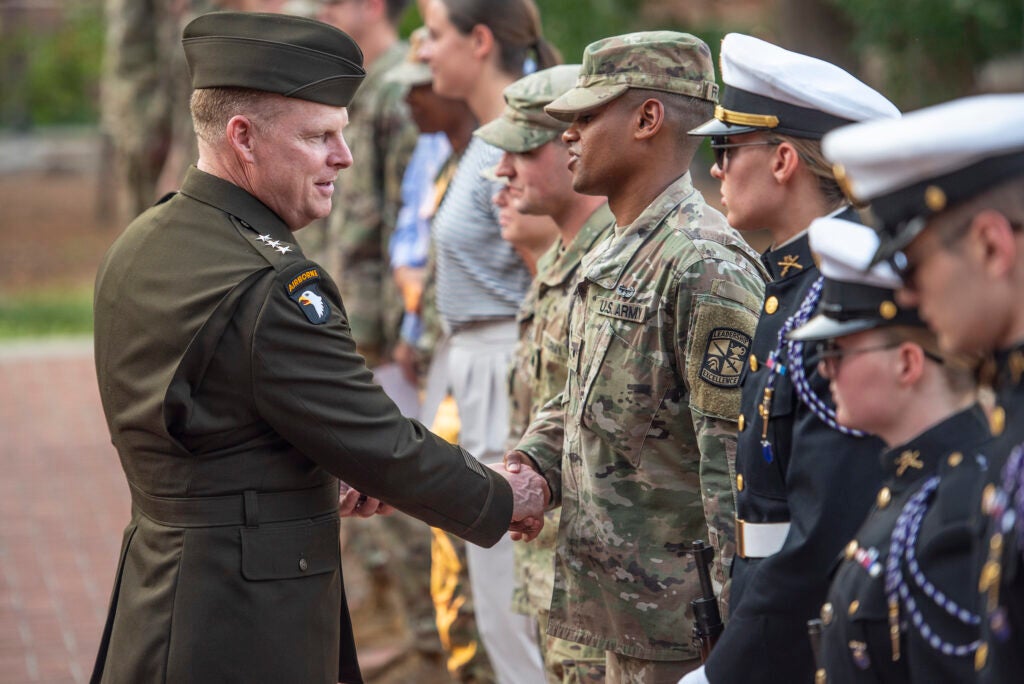
Three sources who spoke with Task & Purpose, including a recently retired Army colonel, described a harmful work environment which one source described as “racist and toxic.” The general was known to frequently degrade subordinates and peers alike, and regularly made inappropriate comments during staff meetings. This article is based on interviews with those three sources, all of whom have direct knowledge of Gamble’s remarks and the culture within the G-4 office, as well as documents and emails outlining the allegations against Gamble while he served as one of the Army’s most senior logisticians.
Gamble, who is White, almost exclusively made disparaging comments about Black general officers he worked with and knew, the sources said. He often spoke down to Black subordinates in meetings and overlooked their suggestions, only to praise the same suggestion when it came from a White colleague. Sources also accused Gamble of making insensitive and inappropriate comments in the wake of the death of George Floyd, a Black man who was killed after a White police officer knelt on his neck for more than eight minutes. Floyd’s murder in May 2020 sparked protests and upheaval around the country and forced difficult conversations about race within the Army.
One source recalled an instance in the wake of Floyd’s death, when a minority staff member couldn’t be present at a meeting and sent a representative in his place. When Gamble heard he would not be there, the general allegedly responded in front of his staff: “I have to keep my foot on his throat all the time, he’s always screwing up.”
“The connotation of ‘foot on the throat’ in the midst of all the George Floyd stuff — he just did not understand why that was a problem,” said a senior leader who previously worked in the G-4 and who has direct knowledge of Gamble’s comment.

Concerns over Gamble rose to such a level that an Army veteran familiar with the situation reported it to the Inspector General in September 2020.
Sources said Gamble’s behavior goes directly against what Army leaders have been preaching for the last few years; fostering a “People First” environment in which soldiers and their teammates look out for one another, and treat each other with dignity and respect. Army Secretary Christine Wormuth put that effort further into focus when she released her top six objectives on Feb. 8, with the fourth being “to build positive command climate at scale across all Army formations.”
“This starts with continued Army leadership and must be developed both from the top down and the bottom up,” Wormuth’s message to the force said. “Character and culture matter, and I am committed to ensuring that we select the best possible leaders and give them the tools and resources to care for their soldiers.”
Comparing what the Army has been pushing publicly to what staff in the G-4 office say unfolded shows that “the video does not match the audio,” the Army veteran said.
“You’re saying something, but on the side, you’re not doing anything about it,” said the veteran, who has more than 30 culminative years of service in and out uniform. “And that’s a disappointment.”
In response to questions about Gamble, Wormuth’s spokeswoman, Lt. Col. Randee Ferrell, said the secretary “expects the Department of Army Inspector General to investigate all credible allegations of wrongdoing by senior officials.”
“Secretary Wormuth will review the completed report and determine what actions are needed,” Ferrell said.
The three sources who spoke to Task & Purpose each have decades of experience inside the Army, both in and out of uniform. One of their primary concerns was that Gamble would not be held accountable for his actions and behavior, saying that the senior levels of the military often have a culture in which leaders look out for one another. In many cases, they said, other leaders can’t bring themselves to see the problems in their peers who they’ve grown up with in the Army. Part of the problem, the senior leader who previously worked in the G-4 said, is other senior leaders who “won’t speak up.”
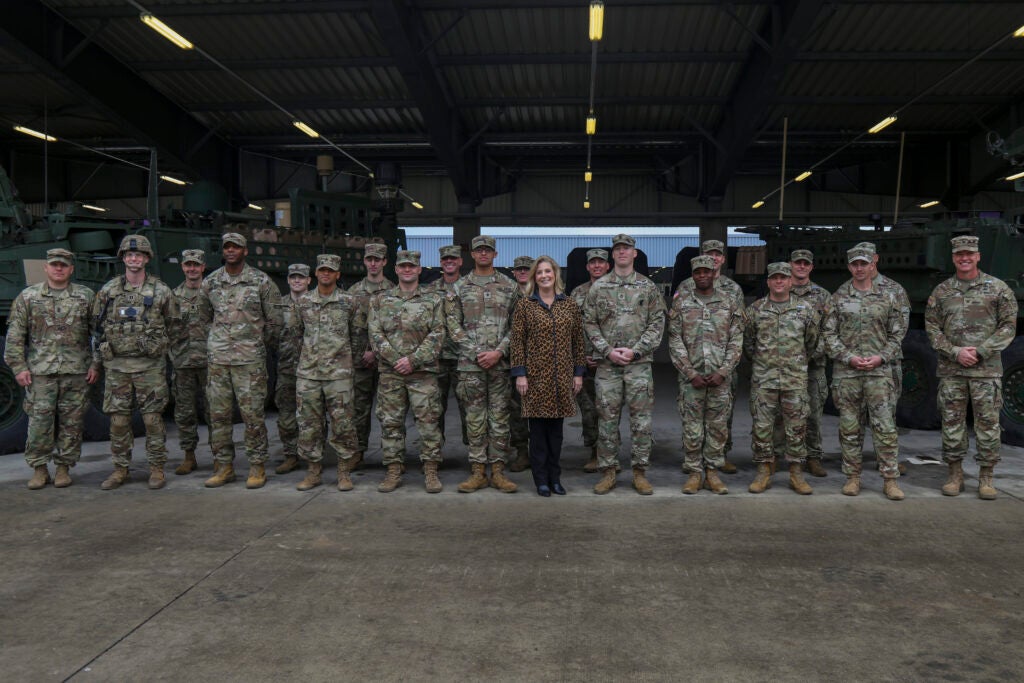
Army Col. Kenneth Williams, who worked in the G-4 office for the last three years and recently retired, agreed. He said there are senior minority leaders “who should be ashamed of themselves for not speaking up” about Gamble’s behavior. But he also said it’s indicative of a culture in the military, in which high-ranking officials often look out for one another while others more junior “suffer in silence” to avoid professional repercussions.
“I don’t trust the system in the Army,” Williams said. “I don’t trust it because it’s based on friendship and it’s based on me knowing you from school, West Point or wherever, and a lot of this stuff is so murky that you can’t put your fingers on it … So we sit back and we go, ‘Are these individuals — do they exist in the Pentagon?’ Absolutely they exist in the Pentagon.
“I will tell you, not only do they exist,” he said. “They flourish.”
‘This is not just the G-4’s problem’
Lt. Gen. Duane Gamble was commissioned into the Army in May 1985, according to his official biography. He previously served as the commander of U.S. Army Sustainment Command and the 21st Theater Sustainment Command; assistant deputy chief of staff for the G-4; and deputy commander of the 1st Theater Sustainment Command and U.S. Army Sustainment Command. His military awards and decorations include a Bronze Star with Oak Leaf Cluster, the Distinguished Service Medal with two Oak Leaf Clusters, and a German Gold Cross of Honor.
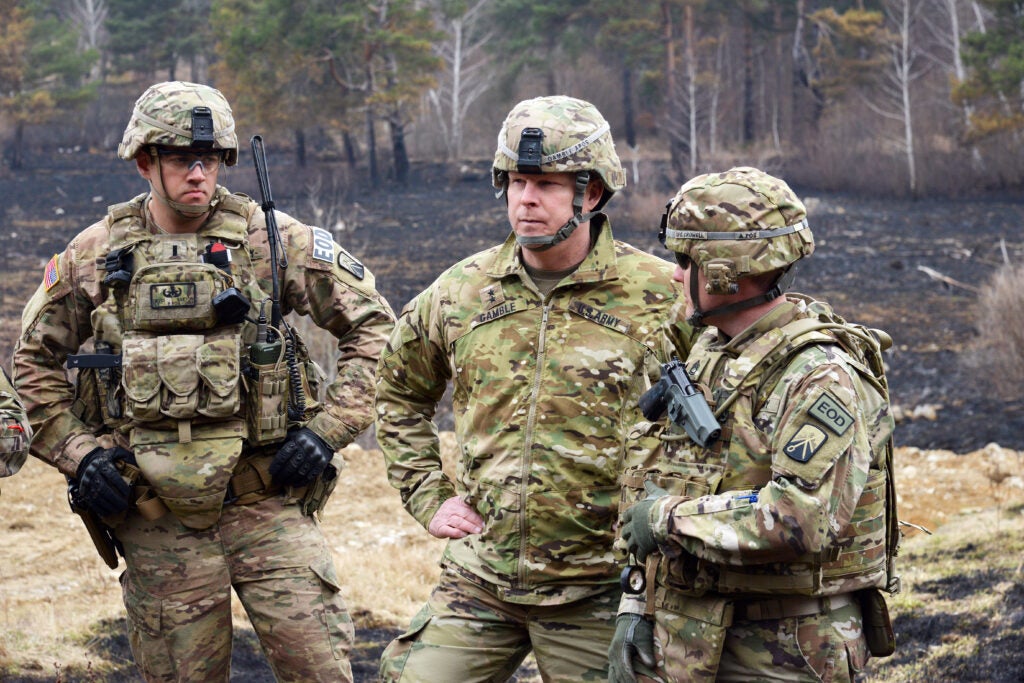
Gamble became the Army’s deputy chief of staff for logistics in September 2019. Dubbed the G-4, the office oversees all logistics operations in the Army, which includes getting, transporting, and maintaining military equipment and supplies.
Almost immediately after Gamble’s arrival in 2019, the culture in the office changed, sources said.
He brought in “a very toxic environment,” the senior leader said, adding that Gamble made it clear that his perception of the G-4 office was that everyone “was just sitting on their ass, not doing anything.” While he appeared “respectful” in public, behind closed doors it was another story, said the Army veteran. He had “sort of a Jekyll-and-Hyde personality.” He started “most of his meetings” by “denigrating people,” the senior leader said.
In one alleged instance at the beginning of a staff meeting in 2019, soldiers and civilians in the room were discussing a Baltimore Ravens game from the weekend before. When Gamble walked in, one of the soldiers asked him if he’d caught the game.
“He said ‘You know, they’re all a bunch of thugs, just a bunch of thugs and they don’t know their city’s just messed up and it’s horrible,’” said the senior leader, who said he took notice of the term “thugs” and its racist history. The term is considered an example of “coded language that [is] used to refer to or speak of Blackness without overtly sounding racially prejudiced,” according to an article in the Journal of Human Behavior in the Social Environment.

John McWhorter, an associate professor of English and comparative literature at Columbia University, told NPR in 2015 that the term “thug” is “a nominally polite way of using the N-word.”
“When somebody talks about thugs ruining a place, it is almost impossible today that they are referring to somebody with blond hair,” McWhorter said. “It is a sly way of saying there go those [Black] people ruining things again.”
It’s “a dog whistle,” the senior leader said of the term. Williams also remembered that meeting, saying that an enlisted advisor in the room “weighed in on it,” telling Gamble, “Hey sir, don’t say that.”
“He said, ‘No I’m just telling you, I’m telling you they’re thugs.’ He said, ‘Now, a person like Joe Flacco’” — the Baltimore Ravens’ White quarterback at the time — “‘he’s a class act,’” Williams recounted. Everyone in the room “just dropped their heads.”
During another meeting, sources recalled Gamble talking about two Army officers who were arguing about something. “He’s going on about them arguing,” the senior leader said, and commented that they “were acting like they’re having a penis-sizing contest.” The Army veteran also recalled that meeting, which they said included both men and women, all in director-level positions.
“We couldn’t even make eye contact with each other,” the Army veteran said. “It just made us uncomfortable.”
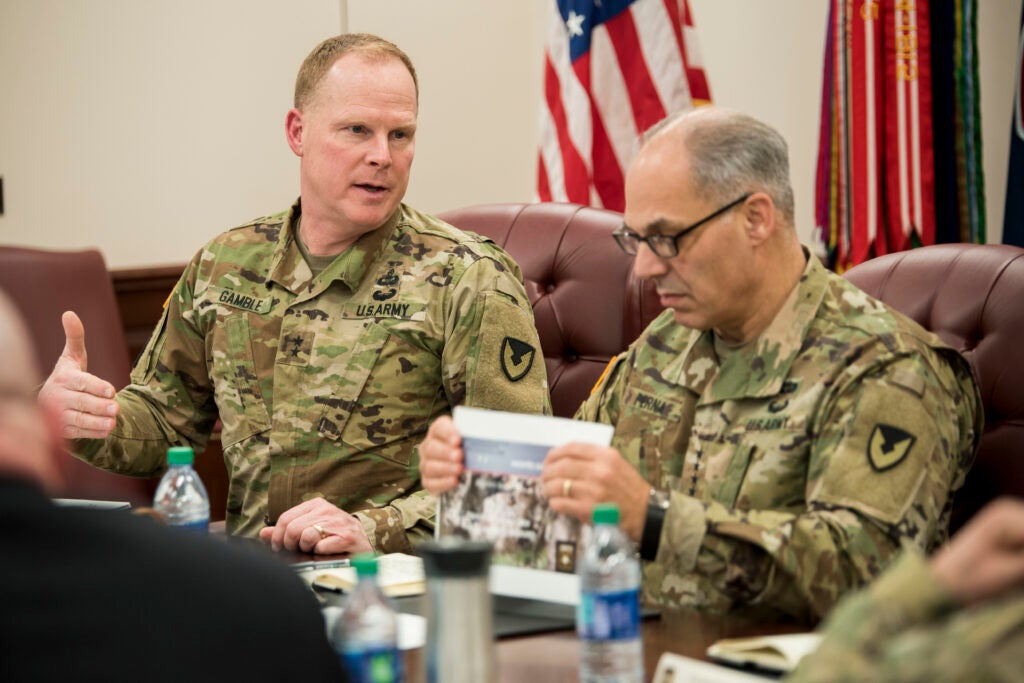
In the wake of Floyd’s murder, senior Army leaders publicly addressed the “explosion of frustration over the racial divisions that still plague us” in a joint statement, urging leaders to “listen to your people.”
“Go to them,” the statement said. “Ask the uncomfortable questions. Lead with compassion and humility, and create an environment in which people feel comfortable expressing grievances. Let us be the first to set the example. We are listening. And we will continue to put people first as long as we are leading the Army. Because people are our greatest strength.”
In the G-4, however, that wasn’t the experience the staff was having. The senior leader who spoke with Task & Purpose said he was involved in one of Gamble’s listening sessions, which was supposed to run for an hour. Gamble “literally talked for 45 minutes.” There was “no opportunity to listen to anything we had to say,” the senior leader said.
“He talked about, ‘Well I’m having this because there’s some allegations there might be a racism problem. I’m not racist,’” the senior leader recalled Gamble saying. “He really talked about himself … I don’t know what value he got out of that.”
Among the anecdotes that sources shared about Gamble, there was one common thread: That he regularly made disparaging remarks about his Black general officer peers.
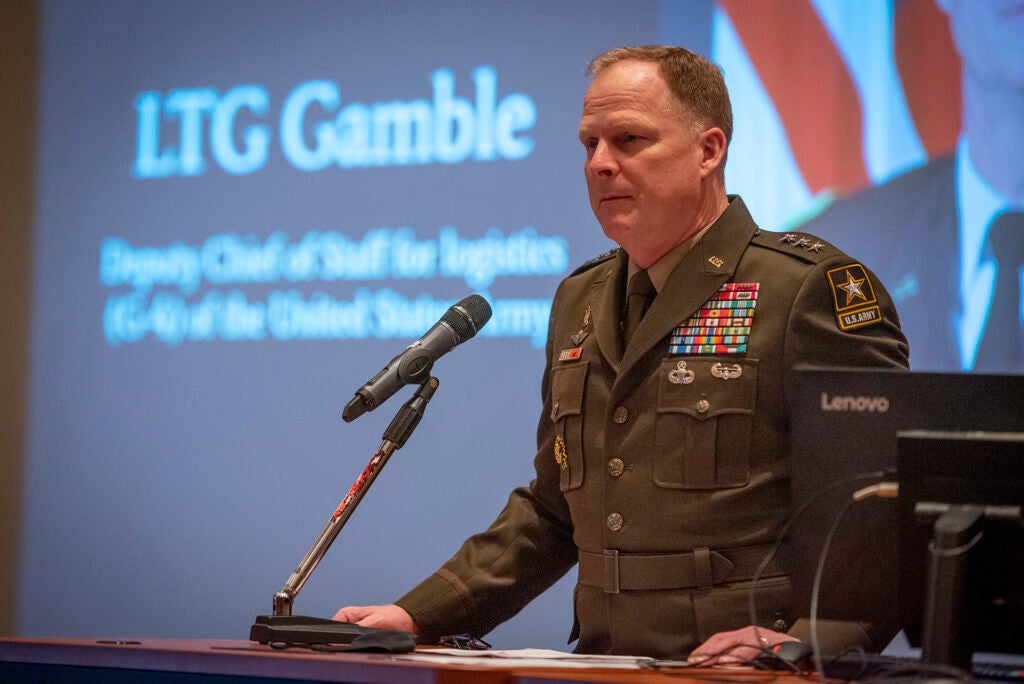
For example, after a meeting with Lt. Gen. Scott Dingle, the Army surgeon general, Gamble purportedly commented to his staff that Dingle is “not leading … he doesn’t know what he’s doing,” according to the Army veteran. In another instance, Gamble allegedly said that his predecessor, Lt. Gen. Aundre Piggee, was “flat on his ass” and “allowed the G-4 to become irrelevant.” The veteran also claimed that he labeled Lt. Gen. Jason Evans, the deputy chief of staff for installations, as “not having a clue;” and said Lt. Gen. Darrell Williams, director of the Defense Logistics Agency, would “never get it done.”
Williams, the retired Army colonel who worked in the G-4 for the last several years, also recalled hearing Gamble make disparaging comments about Gen. Michael Garrett, the commander of Army Forces Command.
“Every Black leader that he came across was ignorant, illiterate, and frankly inept in their abilities to perform their duties,” Williams said. “He made it abundantly clear to everyone in the room that’s how he felt … Every senior caucasian [general officer] ‘gets it.’ But every Black [general officer] is ‘ignorant.’”
That kind of behavior is something he saw Gamble do “more than anything else,” Williams said.
Speaking of Gamble’s behavior more generally, Williams said: “This is not just the G-4’s problem. This is the Army’s problem.”
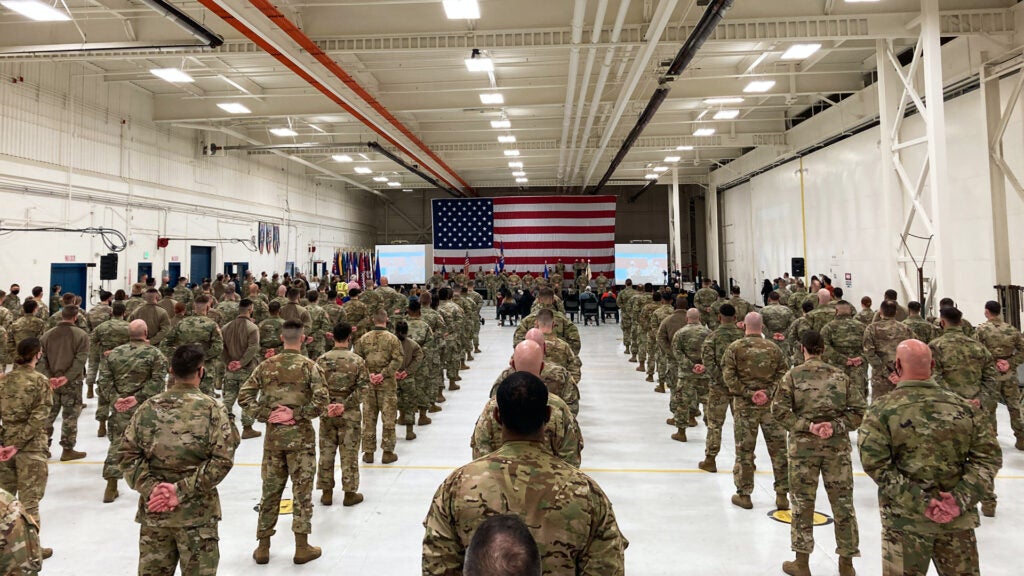
‘You are not going to get a fair shake with Lt. Gen. Gamble’
The IG complaint submitted in September 2020 alleged that Gamble “routinely disparages other senior leaders and subordinates,” listing out each remark made about his Black peers. He “does not listen,” it said. The listening sessions he held “are us listening to him for 80% of the time.”
The formal investigation was launched just two months later. But in March 2021, an anonymous email taking issue with the timeline of the investigation was sent to multiple senior Army leaders.
“We have taken some steps backward because several officers feel [emboldened] and do not support your diversity and inclusion program,” read the email which was sent to more than 10 senior Army leaders, including then-acting Army Secretary John Whitley and Army Chief of Staff Gen. James McConville. “Just don’t believe racism is out in our formations, it’s at the senior levels as well. We need to own it and do something about it by sending a message.”
It’s unclear if the recipients of that email ever saw it.
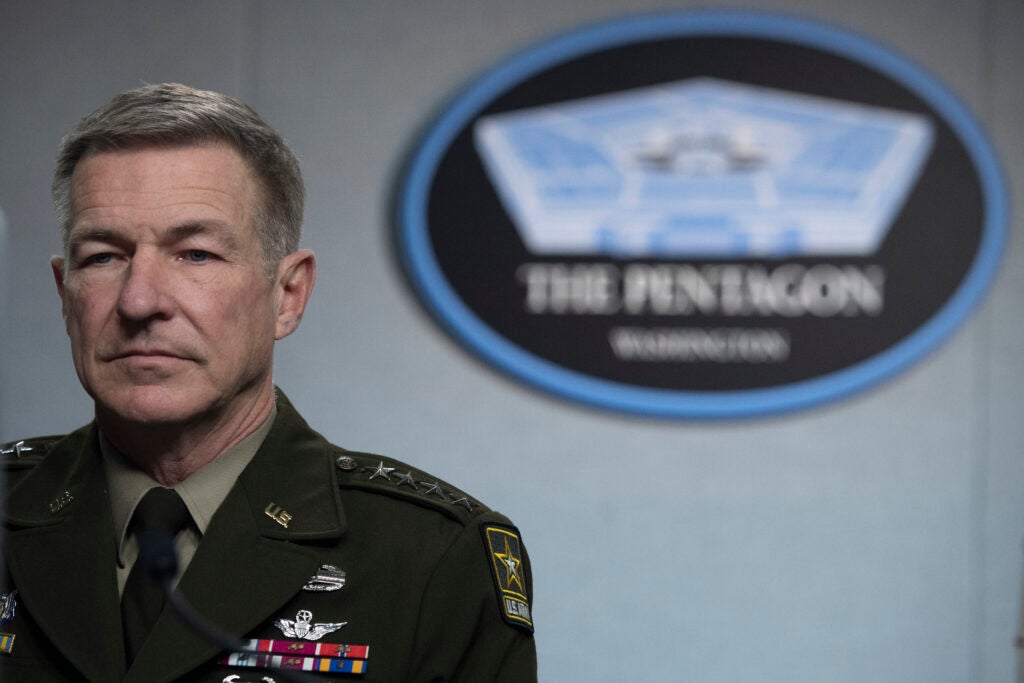
While the sources who spoke with Task & Purpose raised specific concerns about Gamble, they emphasized that his actions are indicative of a broader problem in the Army in which senior leaders can avoid accountability and are let off easier than more junior soldiers and officers would be for the same conduct. Gamble “should not have been the G-4 for very long,” the Army veteran said; “He should have been removed from that position and disciplined.” Instead, Gamble had remained in his position for more than a year while he was under investigation for creating a toxic climate, up until this week.
People knew of the investigation “across the Army,” Williams said, adding that Gamble’s behavior was not a secret. Gamble had been “doing this stuff for years,” he said, but everyone “just suffered in silence.”
Williams said that since being in the G-4 he’s had other Black officers stop him on the steps of the Pentagon, asking if Gamble was still there and expressing their frustration with him.
“All of them feel the same way,” he said. “You are not going to get a fair shake with Lt. Gen. Gamble.”
Ultimately, the sources with knowledge of what was happening in the G-4 said they want Gamble removed from his position to send a clear message that toxicity and racism won’t be tolerated. And to make clear that everyone in the force will be held to the same standard — regardless of rank.
“If this was a [colonel], or lieutenant colonel, or a major, or a captain? They wouldn’t be in the Army,” the Army veteran said. “To me, to allow this to have gone on this long is a travesty.”
What’s hot on Task & Purpose
Want to write for Task & Purpose? Click here. Or check out the latest stories on our homepage.
